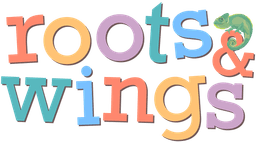Introduction
Self-regulation is pivotal for parents navigating the complexities of raising children. It transcends managing one's emotions; it lays the groundwork for a healthy, supportive family environment. Many seek effective tools to help maintain calm and provide the best guidance for their children.
In this article, you will learn:
- The impact of self-regulation on parenting and child development.
- Practical self-regulation tools and techniques for parents.
- How to seamlessly integrate these tools into your daily routine.
Armed with the right strategies, you can transform challenges into opportunities for growth, fostering a nurturing environment that benefits the whole family.
Understanding Self-Regulation
At the core of self-regulation lies a journey of introspection and awareness. It's about tuning into the energies within our body and identifying our emotional states, especially during moments of overwhelm. As a parent, this involves recognising that feeling strong emotions is part of being human, devoid of any shame. Acknowledging these feelings with kindness and understanding paves the way for a more compassionate approach to both self-regulation and parenting.
This practice of introspection and acceptance is crucial. It sets the stage for managing responses to the unpredictable, often stressful task of raising children with mindfulness and grace. Beyond personal well-being, effective self-regulation influences the entire family dynamic, fostering an environment supportive of healthy development.
Top Self-Regulation Tools for Parents
Self-regulation encompasses a broad spectrum of skills, with mindfulness at its core. By tuning into our energy levels and emotional states, we can navigate our day with greater ease and intention. Here's a guide to maintain balance and mindfulness throughout your parenting journey.
Identifying Your Energy Level
Initiate with a moment of mindfulness to gauge your current energy level: are you feeling depleted, balanced, or overly charged? This self-assessment is crucial for determining the most effective steps towards achieving equilibrium.
Choosing Your Activity
Select an activity that corresponds with your current state, aiming to adjust your energy towards a more centred state. These activities cater to different needs and preferences:
- Mouth Activities: Engaging your sense of taste, such as chewing a flavourful gum or eating a crunchy snack, can help modulate your energy.
- Hand Activities: Tactile engagement, like manipulating a stress ball or doodling, can aid in redirecting excess energy or stimulating if you're feeling low.
- Movement Activities: Exercises, such as stretching or a brisk walk, can significantly impact your energy levels.
- Look Activities: Directing your focus to calming visuals can help in adjusting your energy.
- Listen Activities: Listening to music or ambient sounds can play a critical role in balancing your energy.
Implementing Self-Regulation Tools in Your Parenting Routine
Integrating self-regulation tools into daily life might seem daunting at first, but with a strategic approach, it can become second nature. The key is to start small, remain consistent, and be kind to yourself throughout the process. Here's how to make these tools part of your routine:
Start with Self-Awareness
- Begin each day with a moment of self-reflection. Take a few deep breaths and assess your energy level and emotional state. This doesn't need to be time-consuming; even a couple of minutes can set the tone for your day.
Integrate Mindful Activities into Existing Routine
- Incorporate mindful activities into routines you already have. For example, practise mindful breathing while waiting for your coffee to brew or stretch during work breaks. The goal is to find moments where these activities fit naturally.
Overcoming Challenges
- Parents may encounter obstacles while integrating self-regulation tools into their lives. Identifying and addressing these challenges is key to maintaining progress.
Identifying Common Obstacles
- Common obstacles include lack of time, difficulty maintaining consistency, and being too harsh on oneself. Recognising these allows you to approach them with understanding and compassion.
Strategies for Addressing Challenges:
- Lack of Time: Integrate small mindfulness exercises into daily activities. Practising mindful breathing while waiting for coffee or stretching with your child during TV commercials can make a significant difference.
- Maintaining Consistency: Set reminders on your phone. Involving your family in these activities can encourage regular practice.
- Being Too Hard on Yourself: Remember, self-regulation requires patience and practice. Celebrate your efforts and progress, practising self-compassion.
Conclusion
We've explored the role of self-regulation in parenting, offering practical tools and strategies to help you navigate the challenges of raising children with patience, understanding, and empathy. From identifying your energy level to integrating mindful activities into your routine, these techniques are designed to enhance your well-being and foster a supportive family environment.
To recap, the most important takeaways include:
- Recognising the importance of self-awareness in self-regulation.
- Incorporating simple, mindful activities into everyday life.
- Overcoming common challenges with patience, support, and flexibility.
As you continue your journey of self-regulation, remember that the process is one of continuous learning and adaptation. Celebrate your progress and be kind to yourself as you navigate the complexities of parenting. For those looking to deepen their understanding of mindfulness and its benefits for both you and your child, exploring resources on mindfulness practices could be a valuable next step. Engaging with this material can provide further insights and techniques to support your family's emotional and psychological well-being. Thank you for joining us on this exploration of self-regulation tools for parents. Here's to cultivating a more mindful, balanced, and supportive parenting journey.

